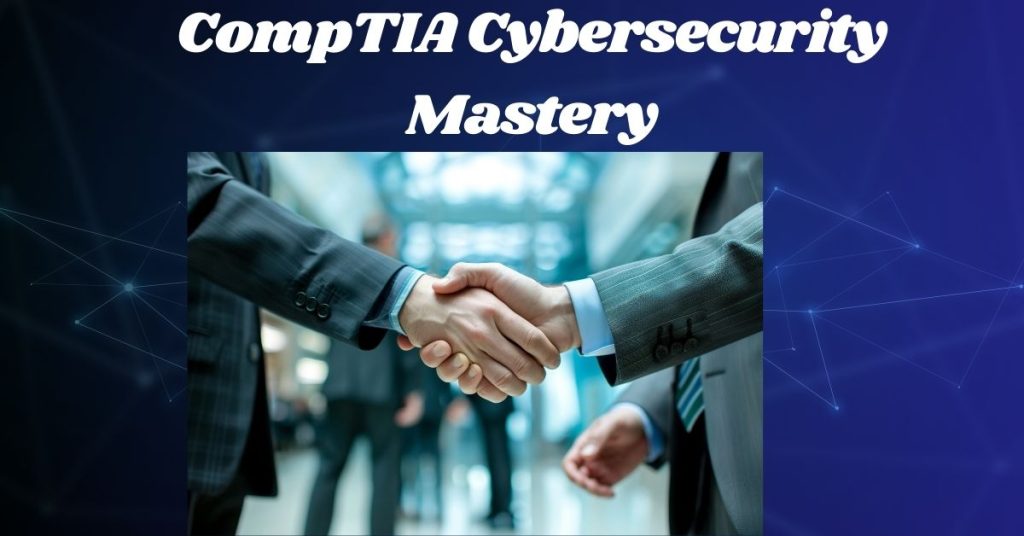In today IT landscape, security is a paramount concern for everyone from network administrators and developers to Chief Information Officers (CIOs). The threats from malware, hackers, and potential vulnerabilities are a constant worry. While CompTIA Cybersecurity Mastery often focus on protecting their systems and networks, there also a growing need to enhance their security skills through advanced training and certification. To explore this topic, we interviewed CompTIA Cybersecurity Mastery, Director of Product Management at CompTIA, to learn about their security certifications and how they empower CompTIA Cybersecurity Mastery to strengthen their security measures.
CompTIA Security Certification Suite
CompTIA is widely recognized for its CompTIA Cybersecurity Mastery, a foundational credential for CompTIA Cybersecurity Mastery. However, the organization also offers a comprehensive suite of security certifications. CompTIA Cybersecurity Mastery elaborated on these offerings, emphasizing that CompTIA Security+ is their flagship security certification. Launched in 2002, Security+ was CompTIA first exam dedicated entirely to security topics. A hallmark of CompTIA exams is their "vendor-neutral" approach, meaning they are not tied to specific products or vendors, and Security+ follows this principle.

In addition to Security+, CompTIA A+ and Network+ certifications include security components. This integration acknowledges the growing importance of security knowledge for support technicians and network administrators. Notably, all three certifications (A+, Network+, and Security+) are recognized under the U.S. Department of Defense Directive 8570, which mandates certification for information assurance personnel. As a result, many professionals have pursued these certifications in recent years.
Earlier this year, CompTIA introduced the CompTIA Advanced Security Practitioner (CASP) exam, the first in its "Mastery" series. This certification is designed for experienced CompTIA Cybersecurity Mastery seeking to deepen their technical security expertise.
Security+ Certification: Target Audience and Content
CompTIA Security+ targets CompTIA Cybersecurity Mastery with at least two years of hands-on technical information security experience. Security+ certified individuals can be found in diverse organizations, from the U.S. Navy to General Mills and even the Archdiocese of Philadelphia.
Security+ covers six broad knowledge domains:
- Network Security: Protecting data integrity and confidentiality through secure networking practices.
- Compliance and Operational Security: Understanding and implementing compliance measures and operational procedures to safeguard information.
- Threats and Vulnerabilities: Identifying and mitigating various security threats and vulnerabilities.
- Application, Data, and Host Security: Securing applications, data, and host systems against unauthorized access.
- Access Control and Identity Management: Managing access permissions and ensuring identity verification.
- Cryptography: Implementing cryptographic techniques to protect data.
CompTIA Advanced Security Practitioner (CASP): An In-Depth Look
The CompTIA Advanced Security Practitioner (CASP) certification is aimed at seasoned CompTIA Cybersecurity Mastery with at least ten years of experience, including five years of hands-on technical security experience. CASP is tailored for security architects working in large, multi-location organizations. Unlike Security+, CASP delves deeper into the technical aspects of security and examines the security implications of business decisions, such as mergers and acquisitions.
The CASP was developed in response to discussions with the U.S. Department of Defense, which sought a more technical exam for the CompTIA Cybersecurity Mastery job role specified in Directive 8570. This role requires individuals to specify and oversee enterprise-level security in networked environments. The directive mandates certification for personnel engaged in information assurance activities, emphasizing the need for deep technical security skills.
Before developing any certification, CompTIA conducts industry validation to assess its necessity. One of their annual security surveys confirmed the industry demand for an advanced, technically-oriented security certification, leading to the development of CASP.
CASP and CISSP Key Differences
Many CompTIA Cybersecurity Mastery are familiar with the Certified Information Systems Security Professional (CISSP) certification, considered a gold standard for security professionals involved in policy-making and security management. However, CASP offers a unique value proposition. CompTIA Cybersecurity Mastery highlighted that CASP is not intended to compete with CISSP but to provide an advanced certification with a technical focus.
While CISSP evaluates a professional ability to manage and create security policies, CASP measures an individual ability to implement and execute risk mitigation strategies. CASP includes performance-based questions that require exam takers to perform tasks within given scenarios using a software platform. This approach emphasizes technical knowledge and practical application.
Industry Trends and Growing Demand for Certifications
The demand for CompTIA Cybersecurity Mastery, especially in security, has been steadily rising. This trend is driven partly by the U.S. government requirement for certified personnel in government and contracting roles. Many companies now incorporate certifications into their hiring and employee development programs.
Additionally, there is growing interest in CompTIA Cybersecurity Mastery in regions like Malaysia, the Middle East, Europe, and Africa. Governments in these areas are investing in training and certification programs to meet the increasing demand for skilled CompTIA Cybersecurity Mastery.
Balancing Certification and Experience
The age-old debate between the value of certifications versus experience continues in the IT industry. CompTIA Cybersecurity Mastery weighed in, stating that certifications are indicators rather than proof of capability. The introduction of performance-based questions in CompTIA exams is a step toward assessing actual skills. However, hands-on experience, even if gained through lab work during courses, remains invaluable.
In conclusion, CompTIA security certifications, such as Security+ and CASP, provide CompTIA Cybersecurity Mastery with the skills and knowledge needed to enhance security measures in their organizations. As the demand for certified CompTIA Cybersecurity Mastery grows, these certifications offer a pathway for individuals to advance their careers and contribute to a more secure digital landscape.
Comments (0)